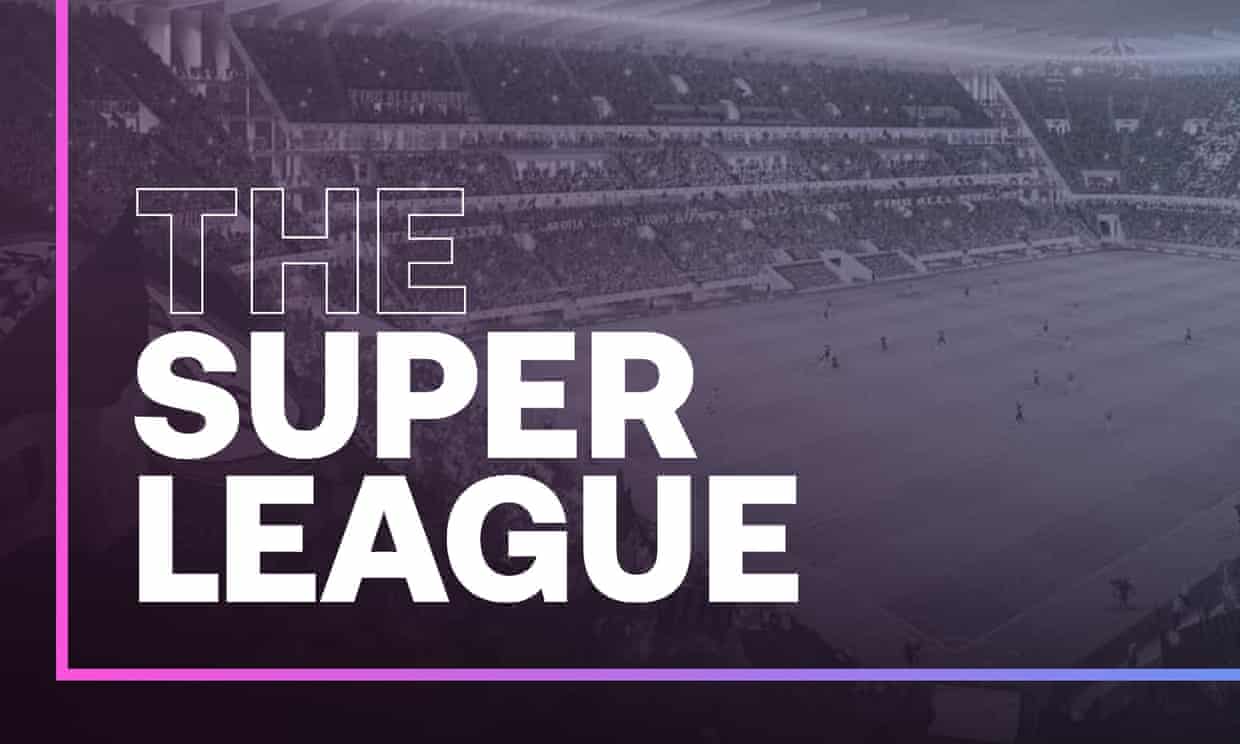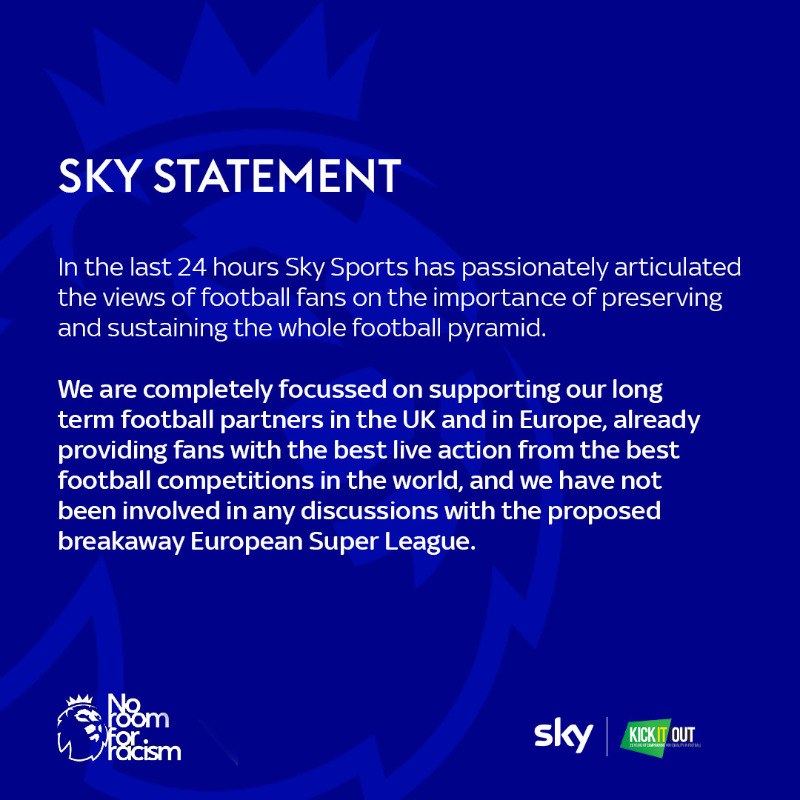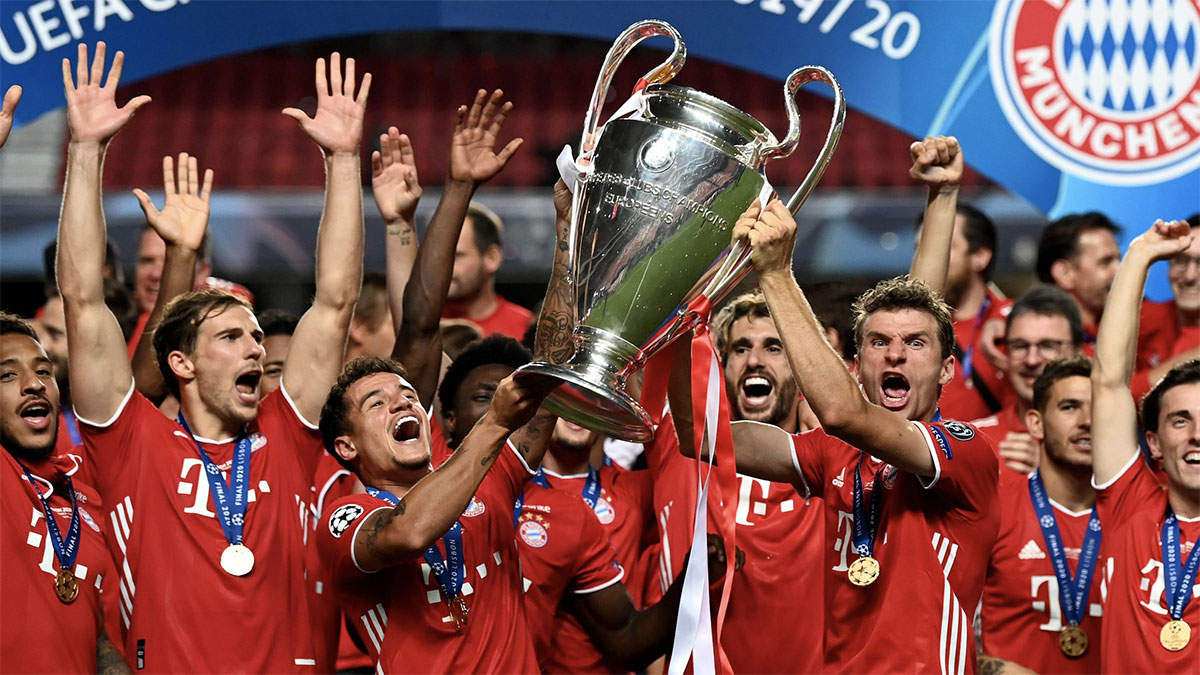
After more than 40 years of operation, DTVE is closing its doors and our website will no longer be updated daily. Thank you for all of your support.
One of the Super League’s biggest sins was alienating broadcasters

Well, that was a week.
From Sunday night’s shock announcement of a proposed breakaway football European Super League to its demise 48 hours later and the subsequent Monty Python routine from Real Madrid president Florentino Pérez, this was arguably the biggest news week for the structure of the people’s game in a generation.
Now that financier JP Morgan has admitted defeat, the Super League has definitively proved to be a failed power grab from a handful of billionaire club owners whose organisational incompetence is only matched by their complete misunderstanding of what sports fans want. (The Madrid president Pérez suggested that matches should be shorter because “young people are no longer interested in football.”)
While there has been a great deal written about the uproar from fans around the football world and the pushback from players and clubs, little has been made of the fact that the broadcasters who would actually be responsible for carrying the matches wanted little to do with it.
BT Sport, Sky Sports, Amazon and other broadcasters all spoke out against the competition very publicly. BT said that a Super League “could have a damaging effect to the long term health of football” while Sky issued a similar statement saying that the proposed plans would damage the ‘pyramid’ of English football – i.e. the structure of promotion and relegation.
Omdia senior principal analyst Tim Westcott however feels that these were more reactive statements than premeditated.
“Most media companies were probably waiting to see how it panned out before they declared an interest,” the analyst suggests.
Broadcast backing was a question
 We now know for certain that the Super League had no broadcast deals in place when it was first announced via press release on Sunday evening.
We now know for certain that the Super League had no broadcast deals in place when it was first announced via press release on Sunday evening.
This, Westcott says, was an early sign that it had an uphill climb to significantly change the footballing landscape.
“Usually when a big breakaway league has been declared broadcasters have been on board. When you think back to the formation of the English Premier League, Sky was on board. When the Rugby Super League was formed it was a Murdoch proposal. More recently with the IPL in India, there wasn’t a media partner on board initially but fairly quickly they sold the rights for a large amount of money,” Westcott says.
While JP Morgan had pledged €3.25 billion as an “infrastructure grant,” the amount of money that would have been required from broadcasters should not be understated.
“The ESL was going to raise money from a number of different sources, but where the TV revenue was going to come from was a key missing question,” Westcott points out. “Broadcasting is a key part of the revenue mix for big clubs now. It is 85% of UEFA’s revenues.”
Tightened purse strings
While the Super League would present clubs with an eye-watering amount of cash – a welcome payment of €200-300 million just for taking part – it is unlikely that broadcasters, even if they were involved, would be willing to splash out as much as the organisers would’ve hoped for.
Westcott says: “As seen in the recent German and Italy rights auctions, pay TV broadcasters are no longer as keen to splash out on rights as they used to be, and streaming service DAZN has denied Italian press reports that it is on board with the new super league. Clearly, the big clubs are eyeing increased returns from growing markets like Asia and North America, but Europe will of course provide the bulk of its revenues.”

Bayern Munich received €130 million for winning the UEFA Champions League in 2020. Under the proposal, the ESL participants would have received more than double that figure just for taking part.
The next barometer for the state of sports rights valuations will be the upcoming Premier League auction for the 2022-26 cycle. The big six clubs involved in the botched ESL campaign – Arsenal, Chelsea, Liverpool, Manchester City, Manchester United, and Tottenham – also were involved with the previously rejected Project Big Picture plans in late 2020. These two dramatic episodes were plays for greater control over the game from execs at the very two, but their failure has arguably strengthened the position of the Premier League.
Omdia’s Westcott is still however adimant that “we’re not going to see an increase in the Premier League rights value.”
Ultimately, the analyst surmises that “The EPL wasn’t the right model for securing the game because it was too much a case of the self-interest of the biggest clubs. But the issues of how to make football more attractive for investors and the sustainability of the professional game at all levels still remain.”
While there are a great number of lessons to learn off the back of the short-lived Super League from the perspective of how football clubs are run, one clear outcome is that any startup sports competition – be it a breakaway league or a new sport altogether – needs to have solid broadcasting backing if it wants a chance at survival.


